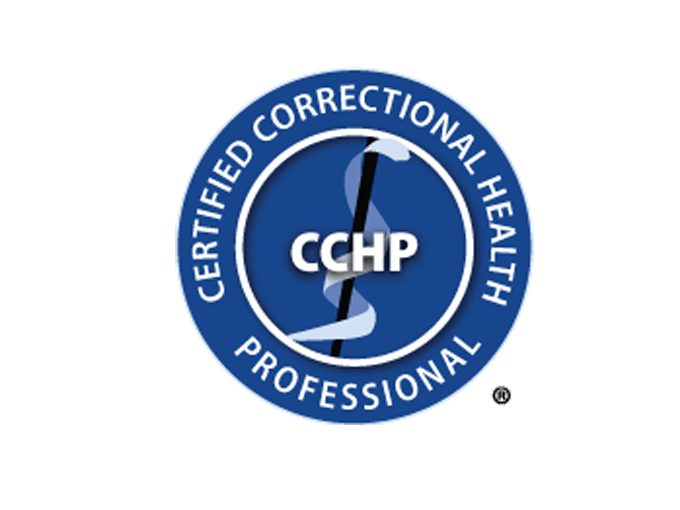
Scholarships Available for CCHP Certification and Study Materials
Five scholarships are available that pay for CCHP testing and study materials.
Home Transitions in Health Services: Don’t Let Change Disrupt Patient Care
By Brent R. Gibson, MD, MPH, CAE, FACPM, CCHP-P
As the COVID-19 pandemic continues to challenge society, and corrections in particular, it’s important not to lose sight of the other challenges faced by jails and prisons. One of the most difficult situations is the transition of health services. Sometimes this occurs because a county or state chooses to self-operate after a period of using a health services vendor, sometimes it is the other way around and a sheriff or other local leader no longer wants to be in the business of providing health services.
With my 20+ years of medical experience, I am very familiar with the challenges brought on by any transition of care. I recall the angst that surrounded discharging a patient when I was a young medical student and doctor. Even in the best of circumstances, patients will have new providers and other caregivers, new sources of medications, new routines, etc. This occurs whether the patient is discharged to home, another hospital, or a skilled nursing facility. In addition, a large amount of medical information must find its way from one facility or group of caregivers to another. With so many methods of documenting medical information, the prospect of the patient carrying paper medical records from one hospital to another is not realistic.
Mitigating Risk
Let’s turn back to the correctional setting. These same concerns remain. One variant of patient transition is when a correctional health care vendor changes. In this common situation, while the four walls of the care environment don’t change, many other aspects do. More challenging, it isn’t the care of one patient that is affected, but many and all at one time. This high-risk period can be mitigated in several ways.
First, a correctional health care program can attempt to hold on to as many of its staff as possible. The change of a vendor does not necessarily mean that staff will change. In many cases, the health care staff remain largely intact, simply changing employers. Another important step can be to keep the same medical record. While some vendors use a proprietary record that goes with them when they leave, arrangements can be made in the beginning of a contract (or under a separate contract) for the facility to acquire an enduring medical record separately.
Another step to minimizing disruption is to ensure continuity of policies and procedures. NCCHC-accredited facilities are expected to demonstrate locally tailored policies and procedures. This requirement stems from our recognition that national companies are providing health care to an increasing number of facilities. While economies of scale bring benefits to counties and states, there is risk in homogenizing the oversight and attempting a one-size-fits-all approach to health care. Accredited facilities, in contrast to this, should be able to readily transition locally applicable policies and procedures to operations under a new vendor.
Another way to minimize disruption is the approach taken to utilizing the advanced care provided to some patients. Even the largest correctional health care service providers cannot provide all needed services. This is usually remedied by establishing relationships with community or otherwise accessible providers (individual practices, hospitals, and health systems). Care may be provided by transporting patients, allowing providers access to patients, or employing remote care options (telehealth). Efforts can be made during a transition to keep these important relationships intact.
Keep It Professional
A word must be said about relationships. If an outgoing vendor is disgruntled or otherwise dissatisfied with the transition, this will almost certainly create problems among all parties and potentially degrade the quality of care. Because transitions often occur when a client is not satisfied with their current service, great pains must be taken to exhibit the highest level of professionalism and focus on patient care. The outgoing vendor should not express “sour grapes” from having lost a contract, and it is equally important that the incoming vendor not gloat at having been awarded the contract.
I am using these terms colloquially, and while no professional would intend to be disruptive, I can assure you this happens. From legal disputes to making access to clinical information difficult, unnecessary disruptions and impediments to care do occur. Always keep in mind we’re in this together, and while a vendor may leave one county to another vendor, sooner or later, at another location, the situation will be reversed. Maintaining good working relationships, even among competitors, is good for patient care and is good for business.
Change happens and, as always in corrections, we must expect the unexpected. Preparation is the key to quality patient care.
About NCCHC Resources, Inc.
Brent Gibson is the chief health officer of NCCHC and the managing director of NCCHC Resources. NCCHC Resources has assisted many states and counties in lessening the burden of transitions, especially as RFP developers, contract technical reviewers, and contract monitors. NCCHC Resources maintains strict neutrality and never participates directly in vendor selection.


